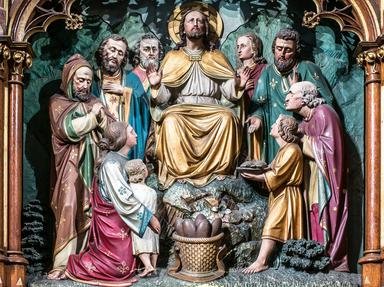
Great Responsibility Trivia Quiz
Judges in the "Book of Judges"
The Bible's "Book of Judges" describes twelve people (judges) who were given the roles as leaders, often having to deal with the great responsibility of delivering their people from oppression. "Judges" separates these leaders into major & minor players
A classification quiz
by pollucci19.
Estimated time: 3 mins.